Just the Math

The reproductive health of women and girls—particularly their ability to access modern contraception—is a critical factor for improving their lives and overall well-being. Preventing unintended pregnancies reduces maternal and infant deaths, decreases unsafe abortions, and allows many adolescent girls to continue their education. Access to and use of contraception also gives women control over their sexuality and reproduction, which results in a healthy, productive life.
The most dynamic young women in Lucknow belong to a special club.
They call themselves Mehak, meaning fragrance. Membership has just one requirement: a passion for improving the status of women and girls in the community. The group is part support group, part health counseling session and part leadership development and mentorship program. Mehak was formed two years ago with support from PAI partner, SAHAYOG, and is facilitated by Shabnam Sheikh—an accredited social health activist, or ASHA—whose two daughters are also members.
Mehak members range in age from 11 to 18 years old. And like a fragrance, their influence has permeated throughout this predominantly Muslim urban community, leaving an unforgettable imprint on their households. In fact, the group has become so important and respected in its short tenure that some moms now attend the weekly meetings too.
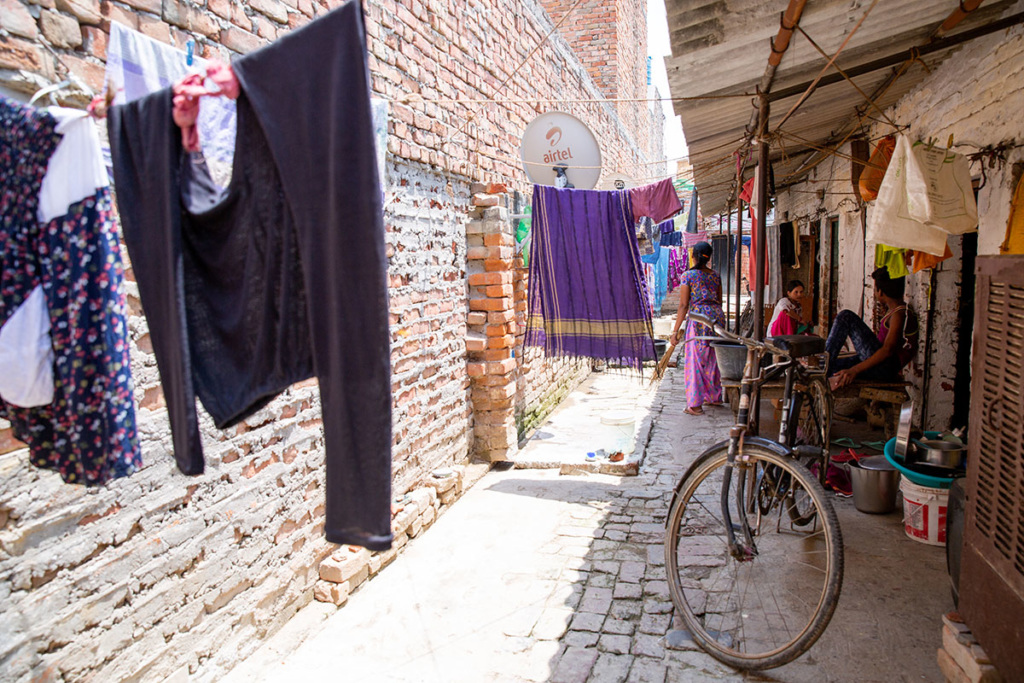
It’s easy to see why. The group is tight-knit, the young women are full of infectious energy and they bring their own unique approach to addressing challenges in their community. Sixteen-year-old Roshni explains:
“The best part about this group is our unity. We love each other a lot; we live together and whatever work must be done, we do it together. For example, if we find out that a girl has dropped out of school, we will approach her family together to support her and do what we can to ensure that she continues her education. Because of this group, we also receive a lot of information that we can share with others.”
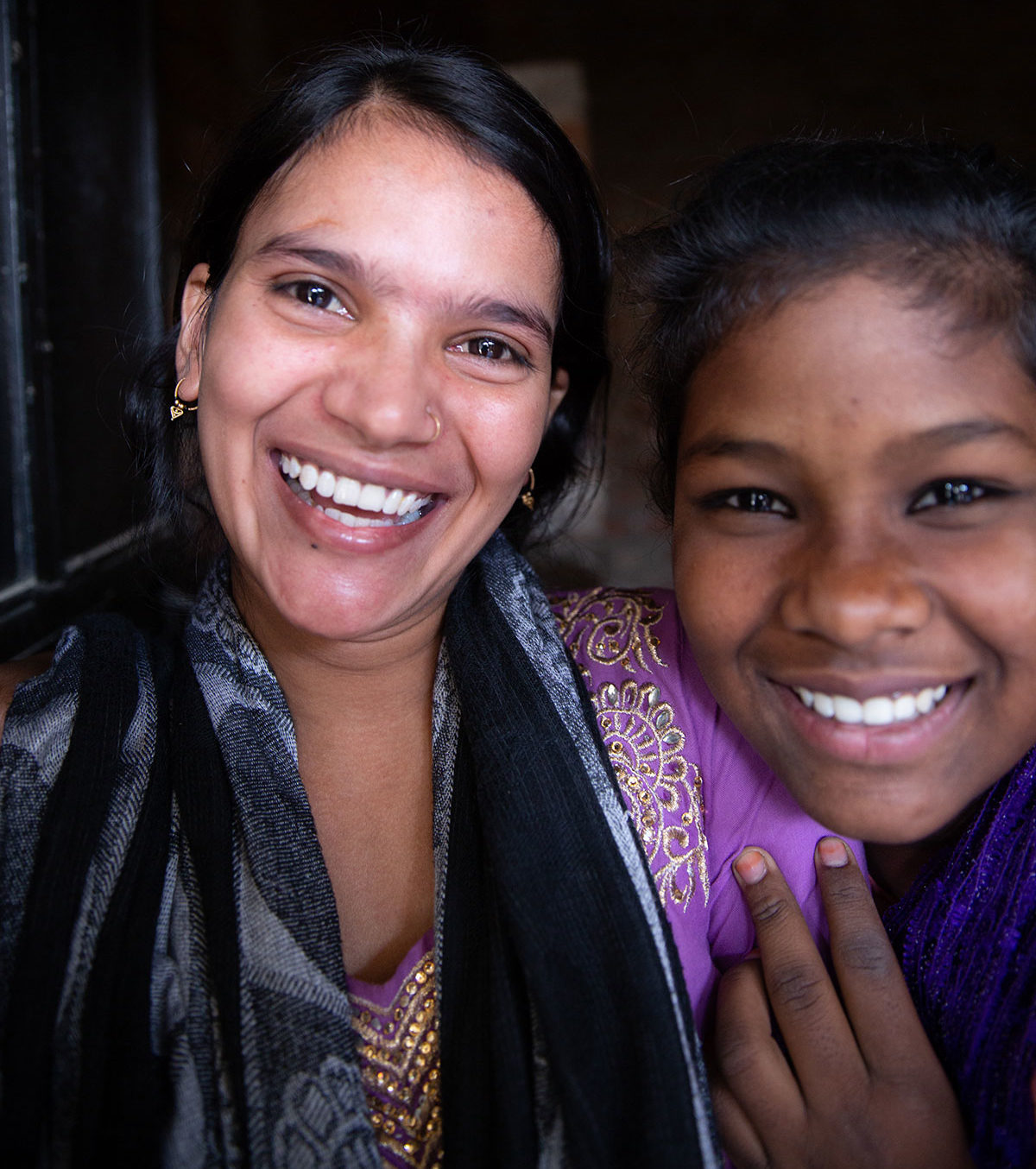
Information on menstrual hygiene management is one of the most important topics addressed in Mehak. It is a safe space to discuss an issue that is still considered taboo and which is surrounded by myths and misconceptions. Members confront these misconceptions head-on:
“There are so many myths,” one young member elaborates. “We were not allowed to touch pickles, basil or henna during our periods, and my mother used to tell me that if you bathe daily, you will get an infection in your stomach.”
To combat these misconceptions, the girls employed a scientific approach. “We did an experiment and did all the things we were told we were not supposed to—both when we were on our periods and when we were not. We proved to our families that nothing bad would happen to us by bathing, touching pickles or anything else.”
Tackling early marriage is another critical priority of Mehak. Recently, group member Ruksar found out that her friend, who is only 16 years old, was to be married to a 40-year-old man. The young woman was distraught at the prospect of marrying someone old enough to be her father; she also wanted to stay in school. Ruksar brought the issue to Mehak and they staged one of their signature interventions with the girl’s parents, imploring them to consider their daughter’s future and happiness. As a result of their efforts, the marriage was called off and she continued her education.
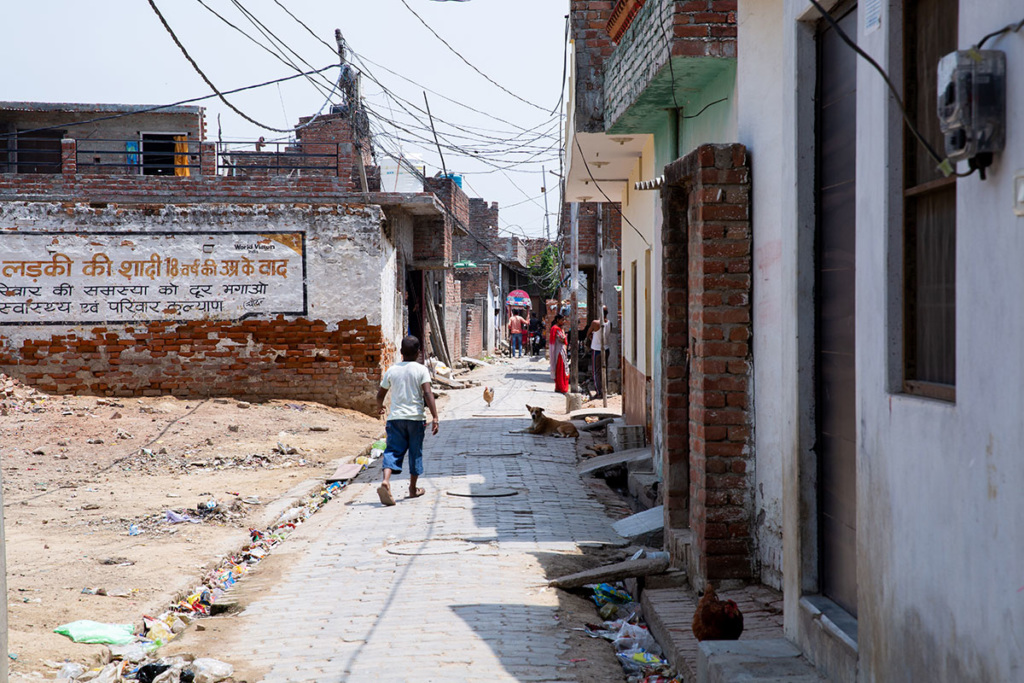
In a highly patriarchal community that prioritizes the opinions of adults over those of young people—especially young women—the group’s achievements are remarkable. Girls face isolation and severe restrictions on their mobility. They are usually not allowed to own cell phones and most are unable to leave the house to go to the bank or the market without a male chaperone. Members of Mehak have been able to push back against these norms and the girls report greater independence and more confidence as a result of their involvement in the group.
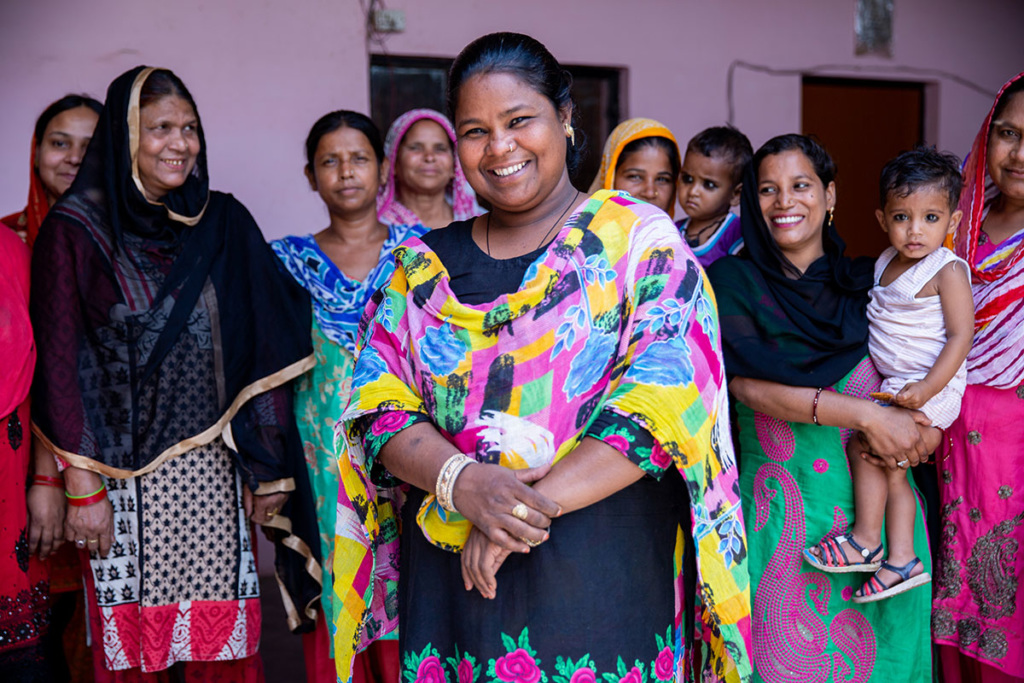
Shabnam explains that groups like Mehak are not just important for sharing critical health-related information and improving girls’ sense of agency and autonomy, but they are also a prerequisite to ensuring the health and well-being of women and girls. The status of girls in this community and much of India is still so low that in many households, girls are kept home so that their brothers can be educated. Intra-household inequality runs so deep that girls are not only forced to wait until after their brothers and fathers have eaten to have their meals; they are also apportioned less food of lower nutritional value. Chronic nutrition deficiencies have ripple effects throughout a girl’s life, making it difficult for her to concentrate in school and contributing to pregnancy-related complications in her reproductive years. These complications increase the risks of both maternal and infant mortality, perpetuating a cycle of inequity in social, economic and health outcomes for women and girls.
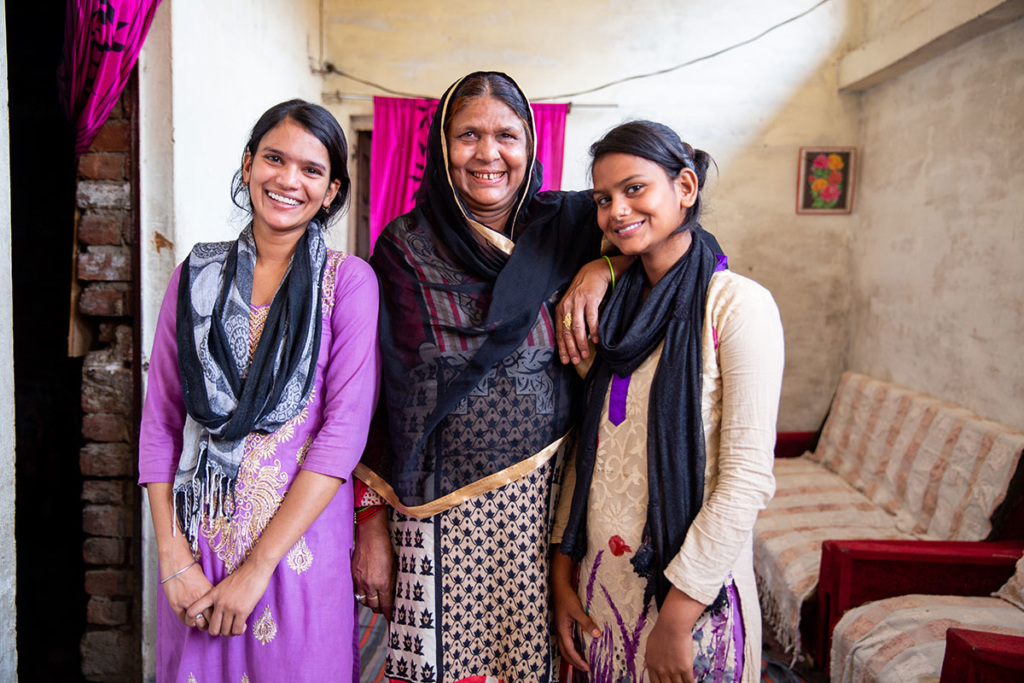
Intra-household inequality also undermines policies intended to raise the status of women and girls. Shabnam describes a complex system of incentives devised by the Indian government to ensure the rights of girl children. For example, families can receive a cash incentive of 38,000 rupees when a girl is born, versus 18,000 for a boy. The intent is to encourage the health and survival of girls, but patriarchal norms mean that these benefits are often not distributed within the household as intended. Without groups like Mehak educating families about the rights of girls and fighting against harmful norms, these cash payments are often diverted and further invested in men and boys.
Much of Mehak’s success is due to Shabnam’s mentorship of young women and the deep trust her dedication as a frontline health worker has engendered in the community. When the Mehak meeting is over, her day is far from done. Shabnam must go on to a group counseling session for mothers and then to several home visits.
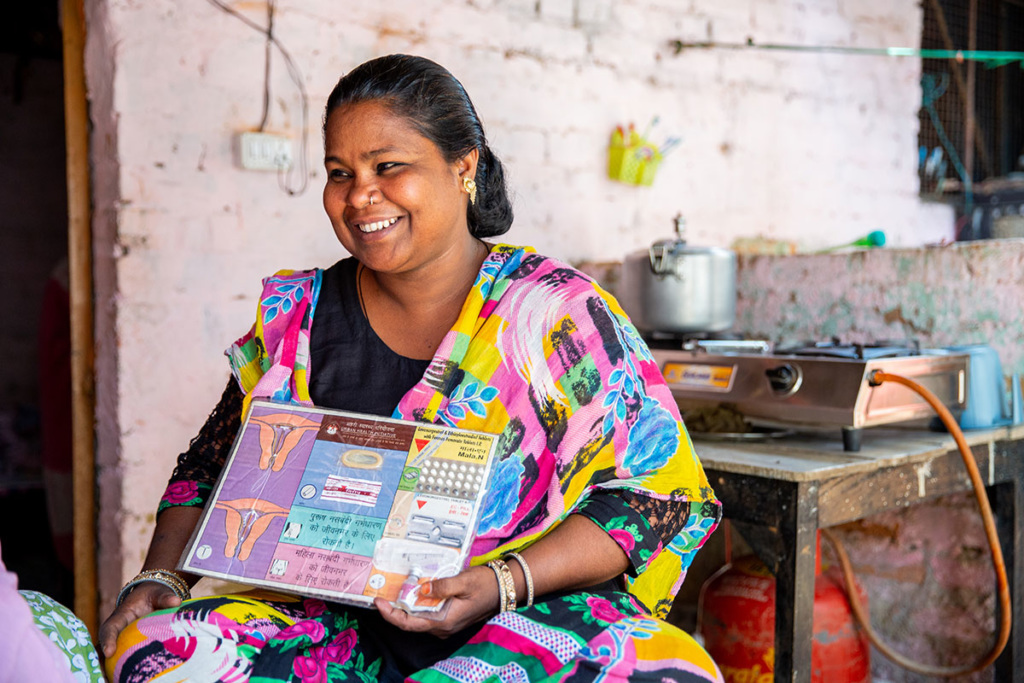
As an ASHA, Shabnam provides contraceptive information to couples, as well as information on child nutrition and immunization. She ensures that expecting mothers attend prenatal visits and accompanies women to the hospital or community health center when it is time for them to give birth. No matter what time a woman goes into labor, Shabnam leaves her family to go with her clients, often staying overnight with mothers through delivery. The broad range of services ASHAs provide means they are integral to ensuring high-quality sexual and reproductive health care in India. To understand the difference Shabnam has made in the last six years, one only has to talk to the women in the community:
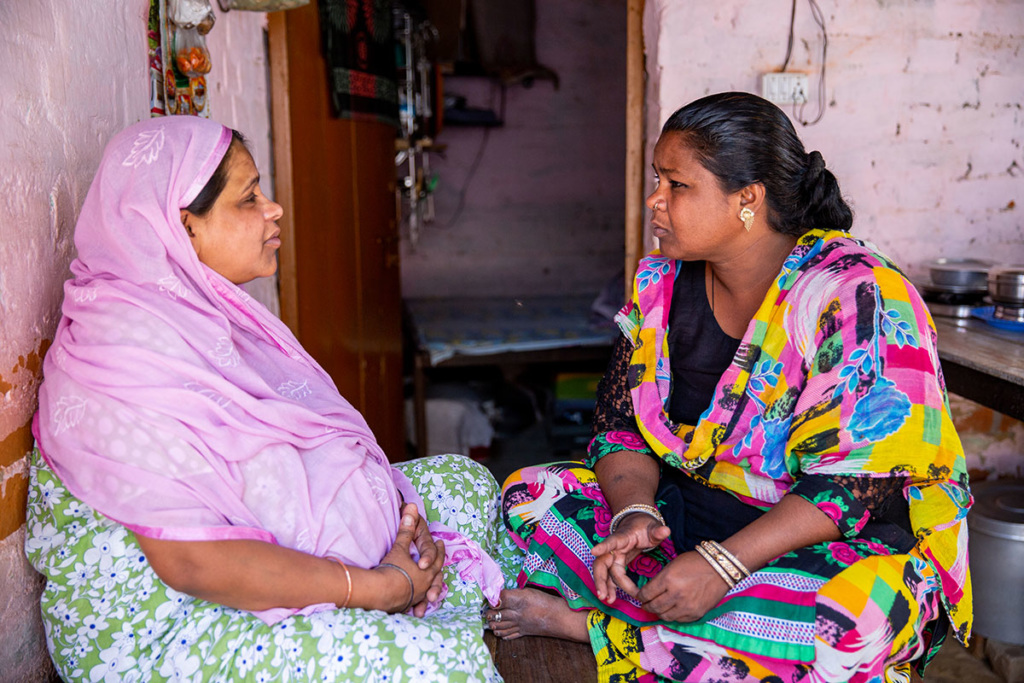
“I had seven children. My daughter only has two. She could choose how many children she wanted and how to space them because she learned about injectables from Shabnam. I wish I’d had Shabnam when I was young too,” an elderly woman says with a laugh.
Even though Shabnam’s workload is heavy, her engagement with SAHAYOG and the Mehak group has afforded her something that most ASHAs do not have—a salary to help support her family. Shabnam hopes not only that Mehak will continue to flourish, but for a similar group for men and boys to be established to address harmful norms and gender-based violence.
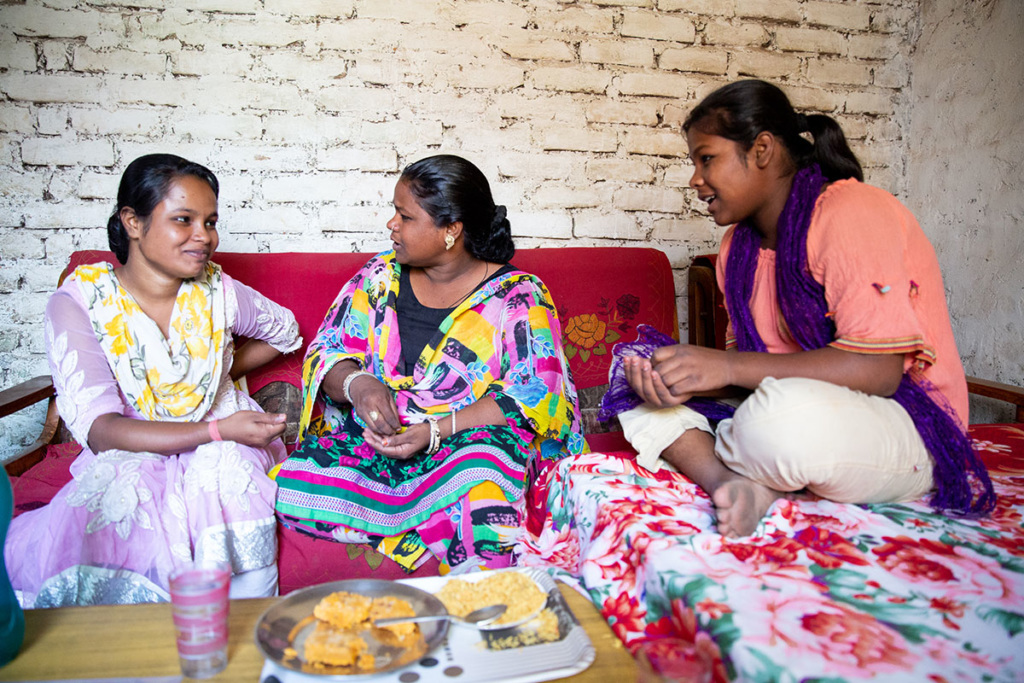
However, the long hours and demands of the job take their toll. And Shabnam, too, intends to prioritize her daughters’ happiness and wellbeing. When asked about her future as an ASHA, her expression becomes clouded.
“I love my work, but it is hard being an ASHA. I think I will quit soon. My daughters are growing up fast. My eldest is studying to become a teacher and my youngest also has big dreams. I want her to achieve all of them. How can I be there for them as a mother when being an ASHA so often takes me away from home? How can I be there for them if I keep doing this work?”
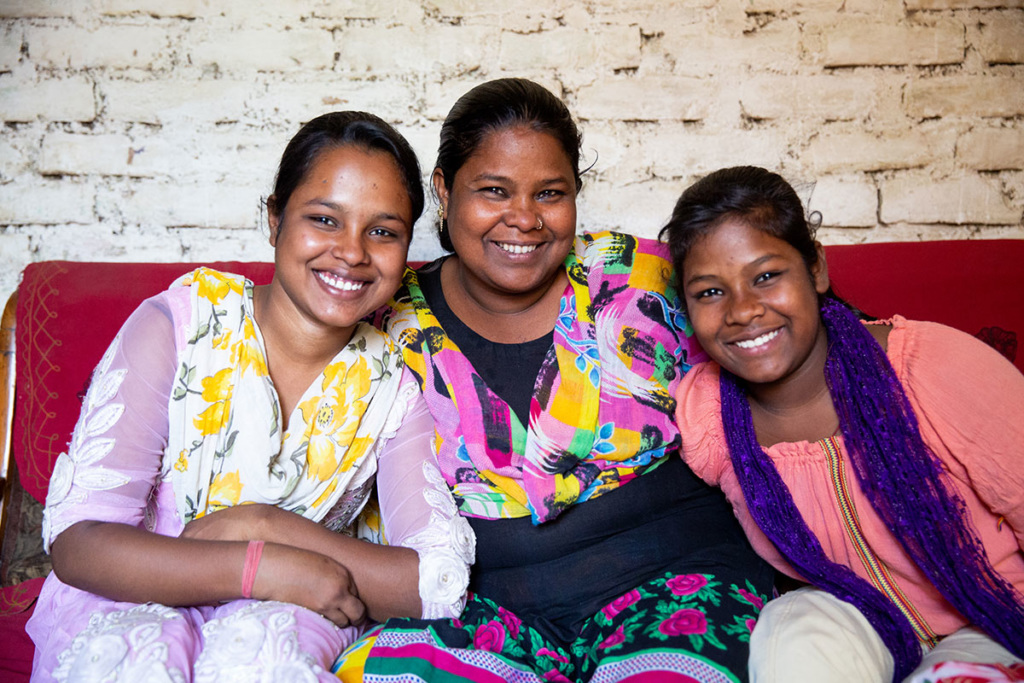
We are fighting back against the onslaught of harmful policies that discard reproductive rights.
Stay informed about the issues impacting sexual and reproductive health and rights.
